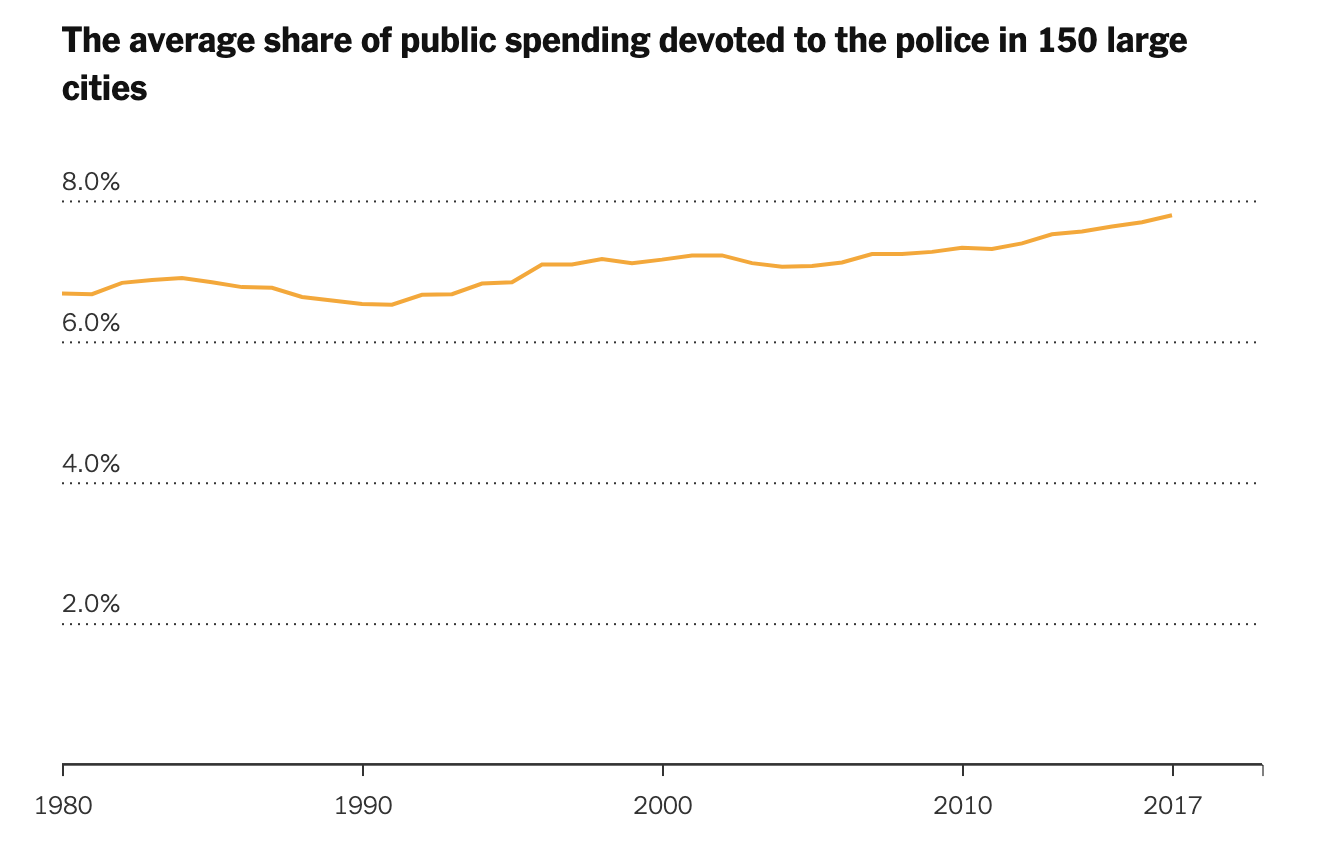what does police abolition mean?

Important Caveat
I am NOT an expert
- Take a deep breath, don't panic
- Police abolition DOES NOT mean fire all cops and call it a day
- Police abolition DOES mean thinking creatively about effective short-term and long-term solutions to render the police force obsolete

-Mariame Kaba in the NYT
"When people, especially white people, consider a world without the police, they envision a society as violent as our current one, merely without law enforcement — and they shudder. As a society, we have been so indoctrinated with the idea that we solve problems by policing and caging people that many cannot imagine anything other than prisons and the police as solutions to violence and harm.

People like me who want to abolish prisons and police, however, have a vision of a different society, built on cooperation instead of individualism, on mutual aid instead of self-preservation. What would the country look like if it had billions of extra dollars to spend on housing, food and education for all? This change in society wouldn’t happen immediately, but the protests show that many people are ready to embrace a different vision of safety and justice."
What are we working with
-
LA has 10,000 police officers, NYC has 35,000
- NYPD headcount grew by more than 3,000 employees since fiscal year 2010.
- $10.9B NYPD total budget for 2020 ($5.6B operating budget)
- The NYPD budget has grown by one-third since fiscal year 2010
- For every $1 that goes to the NYPD, $0.29 goes to homeless services, $0.25 goes to the department of health, $0.12 goes to youth and community development
- The NYPD's budget would make it the 33rd largest military spender on the planet.

Less than a third of a police officer's on duty work is crime-related.
As little as 6 percent of a patrol officer’s time is spent on incidents that ultimately turn out to be criminal offenses.
One study found that among 156 officers assigned to a high-crime area of New York City, 40 percent did not make a single felony arrest in a year.
Source: Brendan McQuade, author of Pacifying the Homeland: Intelligence Fusion and Mass Supervision, 2019

Examples of abolitionist steps in policing
- Reallocating $1B of NYPD's budget towards areas like social services and education programs
- San Francisco police will no longer respond to noncriminal calls
- Minneapolis pledged to replaced their police department with a community-led public safety system


Examples of non-abolitionist reforms
- 8cantwait
- San Francisco already does all of these. Cleveland, Philly, and D.C. do 7/8
- Based on Faulty Data Science
- D.C. passed a bill to "Mandate further training for officers, specifically on 'racism and white supremacy,' and rebuild the board that oversees officer training."
- Colorado passed a bill that requires all police officers use activated body cameras or dashboard cameras during service calls or officer-initiated public interactions
3 questions when examining a proposed change
- Does it increase $ to police?
- Does it reduce scale of police?
- Does it de-link police from ideas of safety?



-Derecka Purnell
"If George Floyd wasn't murdered and instead was sent to jail, is that what we want?
What if the police would've had his knee on his neck for 7.5 minutes, is that justice? For him to be near death and then taken to the back of a police car and prosecuted for an allegedly counterfeit $20 bill.

Is that the world we're fighting for because that's the difference between reform and abolition. We're not fighting for near death experiences for our people.
— Angela Davis
"The etymological meaning of 'radical' is 'root.' So, abolition allows us to get to the root of the problem. That is why it is the radical alternative. Abolition allows us to escape being trapped by the same framework over and over again."
